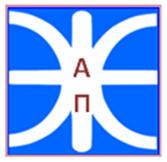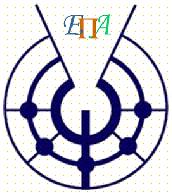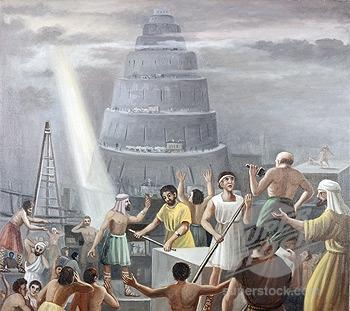

N.B.
1- EthoGloso is promoted by the PythagorArium as an Auxiliary Language
in assisting Katharevoussa being promoted as a Master Language.
Please read first the section of the Mission Statement of the PythagorArium
related to EthoGloso & Katharevoussa.
2- EthoGloso being, at its base, a simplified and improved version of Esperanto,
it is also called EthoSperanto.
EthoGloso Language
The EthoPlasìn Academy is an International University functioning, to start with, mainly in English, as its main common denominator language. However the Academy is committed to gradually use EthoGloso for all its internal communications as soon as possible and promote its use worldwide. EthoGloso is a creation of the EthoPlasìn Academy, and an improvement to existing IAL languages like Glosa and Esperanto. Glosa is an International Auxiliary Language (IAL) similar to Esperanto but, from the point of view of the Academy, easier and better than Esperanto. EthoGloso however takes advantage of both of them, as Esperanto is already a much more structured language compared to Glosa. In short, EthoGloso is an improvement of Esperanto based on the simplification of Glosa: EthoGloso thus takes advantage of the already existing extensive vocabulary of Esperanto (albeit simplified in its roots and general orthography) and the simplification characteristics of Glosa.
The Glosa
IAL was developed between 1972
and 1992. It was created after looking critically at all other
pre-existing IALs, including Esperanto. Glosa is thus considered the most
recent, the easiest and the most advanced of all the so-called IALs.
It is also considered by the Academy to be, by
far, much better and much easier than the more famous, and much
more widely spread, Esperanto. In particular, not having a central
authority yet to control it, Glosa can also be better taken over, freely and
fully, by the Academy, for an adaptation and improvement of its standards and its spreading worldwide,
without problems of copyright nor the restrictive influence of any kind, plainly horse backing the
spreading of the new EthoPlasìn
spirit.
EthoPlasìn
is in fact taking it over,
as a starting point, as a base of its own version, called
EthoGloso (Its logo to the
right uses the basic Glosa logo but with the overlay of its EΠA
symbol in the top part, meaning
EthoPlasìn
Academy, albeit with the Greek "Π"
instead of the English "P").
than the more famous, and much
more widely spread, Esperanto. In particular, not having a central
authority yet to control it, Glosa can also be better taken over, freely and
fully, by the Academy, for an adaptation and improvement of its standards and its spreading worldwide,
without problems of copyright nor the restrictive influence of any kind, plainly horse backing the
spreading of the new EthoPlasìn
spirit.
EthoPlasìn
is in fact taking it over,
as a starting point, as a base of its own version, called
EthoGloso (Its logo to the
right uses the basic Glosa logo but with the overlay of its EΠA
symbol in the top part, meaning
EthoPlasìn
Academy, albeit with the Greek "Π"
instead of the English "P").
Glosa Symbol/Flag as adapted by EthoPlasìn to the right. The basic blue symbol was created by Ronald Clark and Wendy Ashby, based on the previous/ancestor language InterGlossa of Lancelot Hogben.
The EthoGloso language uses only the regular 26 characters of English, but 3 of its consonants are transformed into new vowels: (q = è, w = â , x = ‘e’, with ‘x’ being the French ‘e’ of “Je”). The vowel "y" is no more a vowel, nor a letter proper, but an indicator of plural, for a total of 8 vowels instead of 6. The letter "h", in pure EthoGloso, is no more a consonant, nor a letter proper, but an indicator of aspiration. The regular English consonants are thus reduced from 20 to 16. This way, contrary to Esperanto and most national languages, EthoGloso can use the regular English keyboard to pronounce and write all language sounds in complete uniformity, without exception, and with no accents nor double letters. These rules can be seen in a document placed in the Attachments section of the home page, called: EthoGloso Rules
With the
advent
and the consolidation of the era of Internet and Globalization, time is ripe
for a strong initiative in spreading the best possible IAL worldwide. The Academy
believes it is EthoGloso. In addition, contrary to some of the other IALs,
EthoGloso is not yet closely
linked to any particular country, culture
or nationality (like it is quite the case with Esperanto). The Academy
not only makes it its IAL, but it also promotes it as "the” IAL of best
choice for the EU, the UN and the daily bureaucracy and international
activities of all other organizations and countries having to function on a
multi-language basis.
EthoGloso uses the same Latin letters of the English alphabet, with no diacritics (accentuated letters), no double letters, and only very limited inflections (for case, plural, person, tense etc.). In EthoGloso there is no formal grammar but EthoGloso is nevertheless a full IAL. Grammatical functions are mostly taken over by some operator words and partly by the word order. An EthoGloso word represents an idea as much as a part of speech (a quasi-Chinese language concept). The same word can function as a verb, noun, adjective or preposition within reason.
EthoGloso has two levels of performance.
At its "lower level", it is basically plainly absorbing most of
the Esperanto language, that is
mostly its vocabulary, but of course with a different spelling in order to allow
people to speak and write only with the regular English letters. This allows
the huge Esperanto community to be able to make the switch from Esperanto to EthoGloso
quite spontaneously: words might be spelled differently, but their
pronunciation and their meaning are the same. This also allows all Esperanto
and EthoGloso speakers to be able to hold a simple conversation for routine
daily purposes without being concerned with the second level if they so
wish. At its "higher level" however, EthoGloso draws on an
immense new vocabulary of words with Latin and (mostly) Greek roots, mainly
for the purposes of specialized professionals or for sophisticated
conversations at a more cultural or intellectual level, similar to the best
ones in a language like French or English. The Academy's holistic
education and discipline are
closely rooted in
Ancient Greek Philosophy. Consequently, most of its
higher level words, certainly all the new ones (over and above what it
absorbs from Esperanto), are originating from
Latin or
Greek. These are
also the two ancient languages at the root of most western modern
national languages, making the majority of its vocabulary readily recognizable by
millions of people.
Be it very clear that EthoGloso is not/not meant to substitute any national language. Rather the opposite: each national language should be better preserved by the use of EthoGloso as a common universal means of easy international communication worldwide. People should not be forced to learn other difficult and sophisticated national languages and lose a lot of time doing so (unless they so wish for their own cultural enjoyment). Communicating worldwide through national languages also means having to learn many other national languages in order to be effective and, in most cases, in the end, only minimally so.
The EthoPlasìn founder, Jacques
Drapeau, is the living proof of this: apart from Esperanto, he has studied
10 national languages, mastered 7, and still speaks 5 absolutely fluently.
In spite of this, he still feels very limited in communicating with
nationals of many foreign countries while travelling abroad.
This
is an incredible waste of vital energies that can be better spent on
cultivating and improving one’s own national language and,
at the same time, mastering "the
one" best and easiest IAL.

No more unmanageable Babel Tower because of too many languages being used in the same environment (painting of Gilberto Guarnati)
As we say in our "Summary" page: members can still go on learning foreign national languages as they wish but, as members, from a language point of view, they have two priorities: first master EthoGloso as the best way to communicate perfectly for routine current affairs between themselves, on the campus or wherever they happen to be in the world, and second, concentrate on improving proudly the perfect command of their own national language. This second objective, of perfecting one's own national language, is also an important priority for EthoPlasìn, in order to help improve social decorum and cultural refinement by stopping, or diminishing, the growing and ugly process of bastardization of most national languages, like it is happening now, because of the world globalization. The bastardization of the modern Greek language itself is the best example of this destructive trend and a particularly sad one in light of its unique historical richness. EthoGloso is definitely intended to be the primary common language of all members as soon as possible. EthoGloso is also being promoted by EthoPlasìn as the ideal common auxiliary language for all international organizations, and for all national governments having to operate on a multi-language basis. Hopefully this way EthoGloso will eventually become "the" ideal IAL of a new world of EthoCracy in due time.
Learning
EthoGloso is not only most easy but it also frees people completely from the
widely spread frustration, let alone, very often, the accompanying
“inferiority complex”, of being forced to learn somebody else’s language, or
the language of some kind of “superior” nation in order to be effective
abroad.
In other words, with EthoGloso, all can better concentrate on, and improve, the
knowledge of their own national language, while still being able to
communicate easily anywhere around the world for all their practical
purposes, feeling free of any hard feelings regarding having to learn
‘foreign national’ languages.
Pre-selection of students at the ARIUM takes place in part on the basis of
the degree of their previous knowledge of English, but also their familiarization with the
EthoGloso auxiliary language. The
EthoGloso requirement is publicized through the Academy's website,
through collaborating institutions and by all other means available on the
Internet.
Students are only accepted at the Academy on full scholarship, during or after completion of their high school and, apart from their own mother tongue, they need to have already a good basic command of the English language. A good familiarization with EthoGloso is also a positive factor in their selection. Free EthoGloso courses are made available in advance, for candidates to acquire at least a good basic knowledge before they apply for admission at the EthoPlasìn Academy. For those interested in the difference between EthoGloso and Esperanto, there is a document available in the Attachments section of the home page, called: EthoGlosoRules. Another attachment serves as a course sample: EthoGlosoLessons.
Language requirement is only one criteria of the pre-selection process.
Other
criteria of selection include of course an impeccable background of behavior, a
reputation of neatness of the candidates so far in their lives (based on the essence of
Rules 1
and 2 of the EthoPlasìn discipline, the
Basic Association Entry
Rules, and
the willingness to accept to be submitted, voluntarily and serenely, under
contract, to a severe discipline
during their holistic formation and study at the Academy.